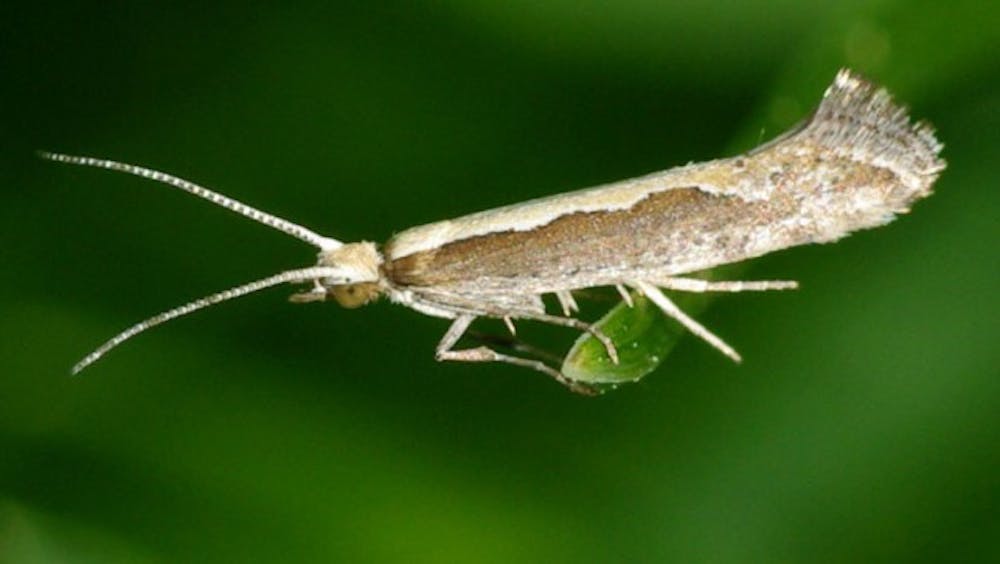
A recent article in The New York Times has brought to light an interesting development in the perpetual arms race between pest and farmer.
The pest in question is the Diamondback Moth, an invasive species. The moths lay their eggs on cabbage mostly. Later, caterpillars emerge, eat and destroy the crops. Every year these very hungry caterpillars eat an estimated $5 billion in cabbage each year. That is a lot of coleslaw!
Normally, this battle would be fought with pesticides. Unfortunately these little beasties are immune to a host of chemicals, including the ever-potent DDT. However, scientists at Cornell University are beginning to bring new weapon to battle: genetics.
Scientists are changing the genome to prevent these critters from being able to produce female offspring that will reach adulthood, rendering the species sterile. The idea is to release these modified bug-a-boos out into the wild and breed with the natural population. Come breeding time, the next generation of these wild-GM crosses will be all male, meaning no new caterpillars.
However, the gene responsible for the female self-destruction is lost after a few generations. This will require a new batch of modified buggies to be released every so often.
Although the project is still the testing phase, its aim is to cut down on pesticide usage, which for many is a cause to get behind, but this project is still receiving criticism.
Some worry predators of the moth eating a modified moth and the possible repercussions this will have on them. Organic farmers, who cannot use anything genetically modified on their farms, are worried about moths migrating to their land and damaging their organic status.
Both of these criticisms seem to be unfounded. During testing, the protein responsible for the death of the female moths was fed to many moth predators with no repercussion.
Moths that wander on to fields would not jeopardize a farm’s organic status because they were not intentionally put there by the farmer, much the same way that hemp, an illegal crop to plant but grows naturally in many places, growing in a corn field can’t get a farmer in trouble just as long as he can prove he didn’t plant it intentionally.
While this new technology is still in the testing phases and not ready for market, if this technology gets approved for use on farms in the years to come, genetics could be the game changer for the war on pests.
Who knows? Maybe one day there will be more than self-destructing moths in our gardens.
Self-destructing Moths: Coming To A Cabbage Patch Near You!

